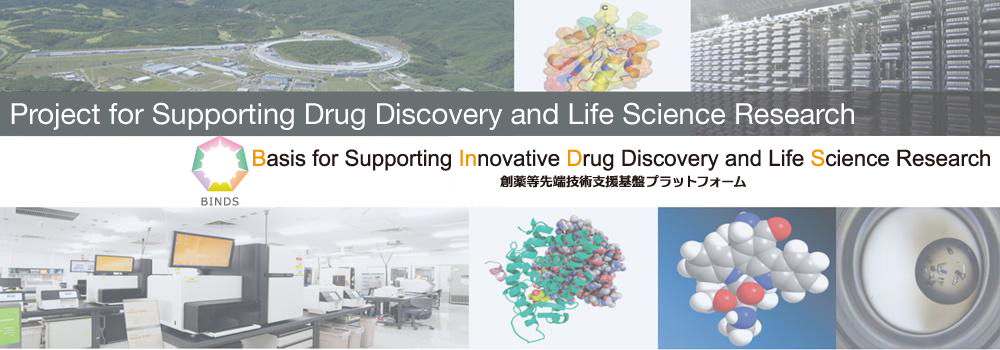- About Us
- Contact Us
- Member
- Our Mission
- Chemical Library
- Screening Systems
- Infrastructure
- Providing Samples
- Old Projects
About Us

Drug Discovery Initiative, DDI, was established to contribute to our health through the elucidation
of life phenomena and the discovery of new drug leads. DDI is a hub of national collaborative
research networks for drug discovery based on our public chemical library. DDI promotes open
innovation by providing advice, technical support and chemical samples to the researchers who
need to screen chemical samples. DDI also provides chemical synthesis and pharmacokinetic
research support for lead compound generation.
Contact Us
Drug Discovery Initiative, Graduate School of Pharmaceutical Sciences, The University of Tokyo
7-3-1 Hongo, Bunkyo-ku, Tokyo 113-0033, Japan
Telephone: +81-3-5841-1960
Facsimile: +81-3-5841-1959
E-mail: ddiinfo![]() mol.f.u-tokyo.ac.jp
mol.f.u-tokyo.ac.jp
Member
| Director, Professor, | Yasuteru Urano, Ph.D. | (Dean) |
| Deputy Director, Professor, | Hirotatsu Kojima, Ph.D. | |
| Associate Professor, | Toru Iijima, Ph.D. | (LEU) |
| Associate Professor, | Kosuke Yasuda, Ph.D. | (LEU) |
| Associate Professor, | Tatsuya Zenkoh, Ph.D. | (LEU) |
| Lecturer, | Riyo Imamura, Ph.D. | |
| Lecturer, | Kayoko Kanamitsu, Ph.D. | (LEU) |
| Lecturer, | Mari Takamiya, Ph.D. | |
| Member, | Chie Coda | |
| Member, | Tomoko Futamata | |
| Member, | Tsukasa Hasegawa, M.S. | |
| Member, | Kiyoe Hayashi | |
| Member, | Chinatsu Honma, M.S. | |
| Member, | Yoshiko Inoue | (LEU) |
| Member, | Mayumi Ishii | (LEU) |
| Member, | Masaki Koshimizu, Ph.D. | (LEU) |
| Member, | Izumi Minegishi | |
| Member, | Hiroyuki Miyachi, Ph.D. | (LEU) |
| Member, | Takashi Motoyaji, M.S. | |
| Member, | Noriko Nakaya, M.S. | (LEU) |
| Member, | Kuniko Saiki | (LEU) |
| Member, | Masaaki Sakurai, Ph.D. | |
| Member, | Naoki Suto, Ph.D. | (LEU) |
| Member, | Masashi Suzuki, Ph.D. | (LEU) |
| Member, | Saori Tahara, M.S. | (LEU) |
| Member, | Natsue Taketa | |
| Member, | Yasunori Tsuboi, M.S. | (LEU) |
| Member, | Eri Watanabe | (LEU) |
| Technical Staff, | Saori Naito | (LEU) |
| Visiting Researcher, | Takayoshi Okabe, Ph.D. |
Management Committee
| Yasuteru Urano, Ph.D. |
| Junken Aoki, Ph.D. |
| Hirotatsu Kojima, Ph.D. |
| Shigeo Murata, M.D., Ph.D. |
| Taisuke Tomita, Ph.D. |
| Kosuke Yasuda, Ph.D. |
| Tatsuya Zenkoh, Ph.D. |
History and Aim of DDI
A public chemical library is an important research platform for the development of synthetic small molecules that regulate biological functions. Hit compounds can be identified by high-throughput screening of the library. Optimization studies are then performed to create the lead compounds with more selectivity, higher activity and better ADMET properties. For a long time, however, there was no large-scale public chemical library in Japan.
In 2006, Chemical Biology Research Initiative, CBRI, was established in the University of Tokyo with the aim of contributing to the development of life science research and applying the results of basic research in academia to industry. In parallel with building the chemical library, we provided compound samples to researchers nationwide who need them.
In 2011, we set a new goal to further develop research activities based on the established chemical library in collaboration with research groups in a wide range of fields within and outside the university, and renamed the organization Open Innovation Center for Drug Discovery, OCDD, to provide comprehensive support from hit compound discovery to lead compound generation.
In addition, in 2015, the organization was renamed Drug Discovery Initiative, DDI, to further enhance the chemical library with samples deposited by pharmaceutical companies, and Lead Exploration Unit (LEU) was newly established in DDI to be responsible for generating lead compounds, thereby developing activities to contribute to the Healthcare Policy promoted by the government.
In 2022, DDI was reorganized as an affiliated organization of Graduate School of Pharmaceutical Sciences, and at the same time, DDI was accepted into the BINDS project (Phase II) of Japan Agency for Medical Research and Development, AMED, to continue our drug discovery research support based on the know-how of people with research experience in industry and past experience in supporting drug discovery research in academia.
As shown in the schematic diagram, “synthetic compounds that regulate biological functions” will be efficiently created by promoting collaboration among research groups in various fields such as organic synthetic chemistry, medical science, analytical chemistry, biophysics and life science. DDI aims to promote active collaboration within and outside the university.
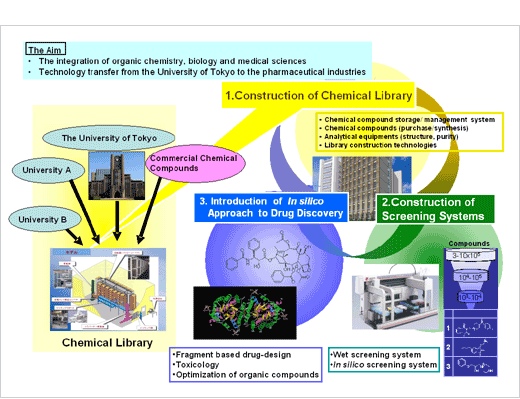
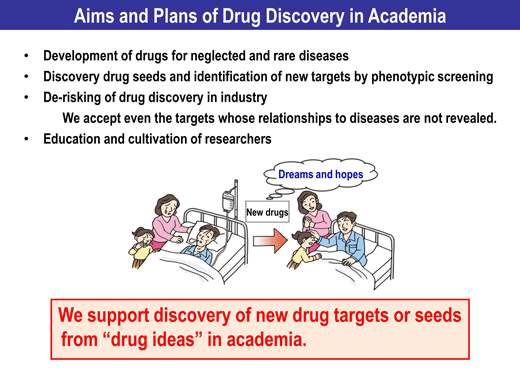
Chemical Library
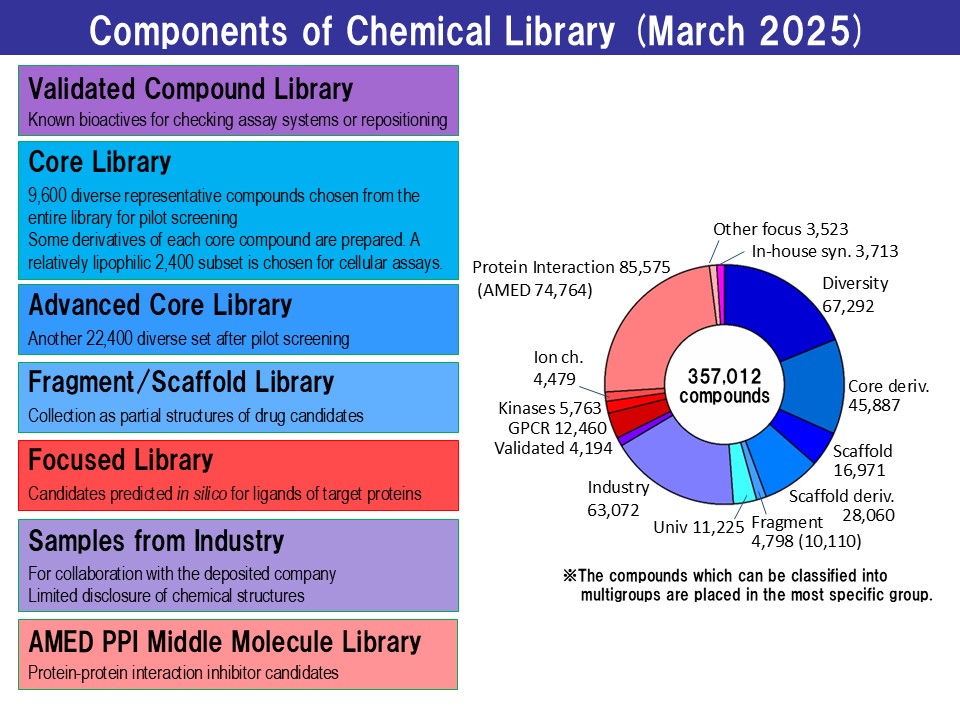
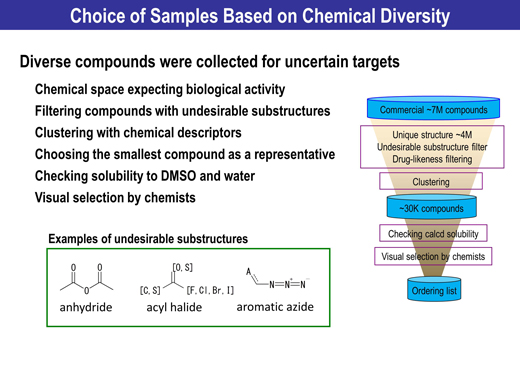
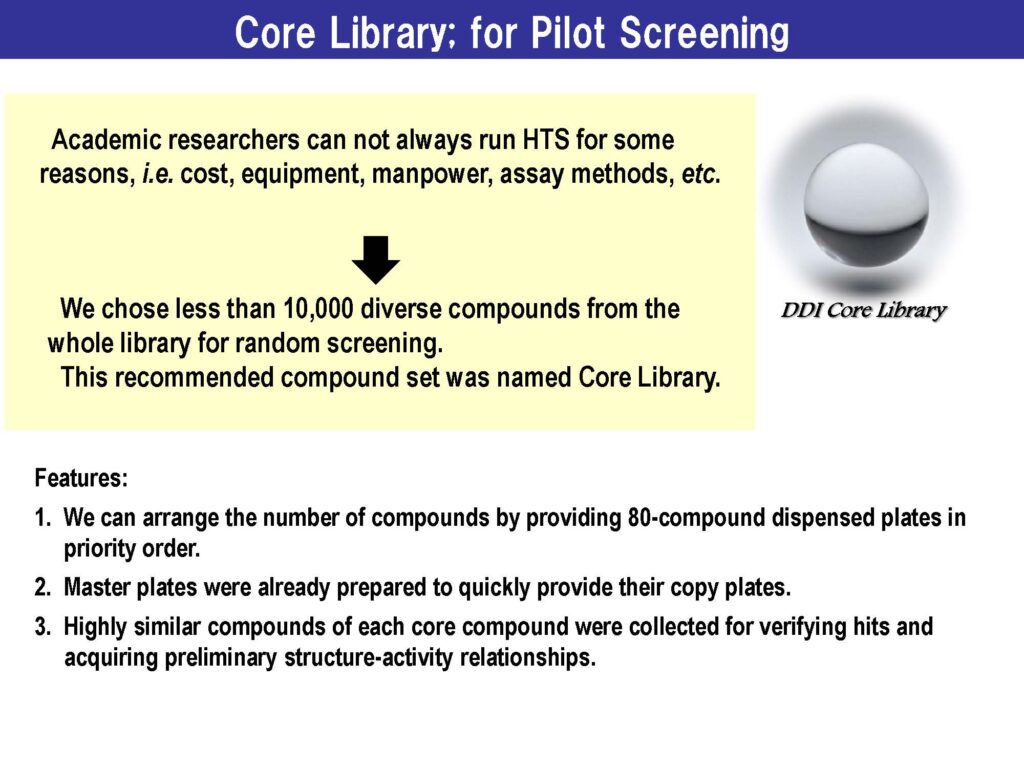
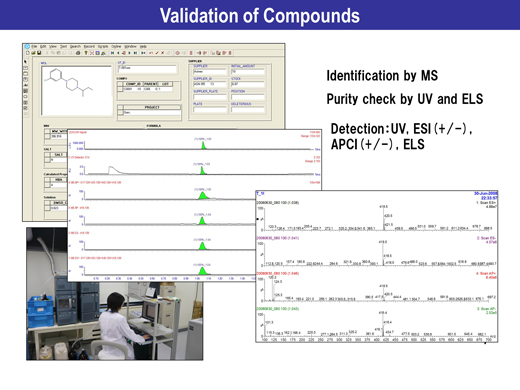
Screening Systems
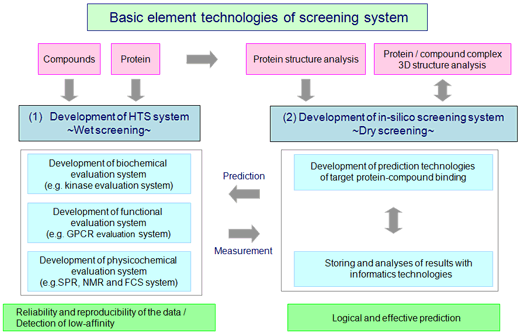
Infrastructure
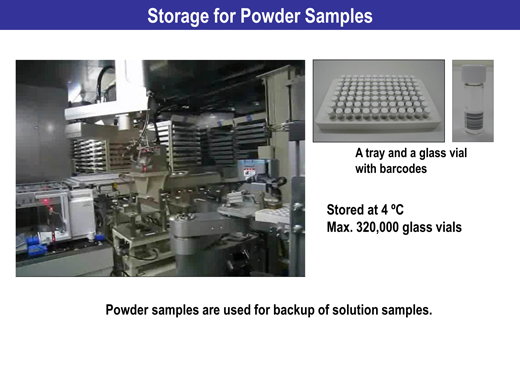
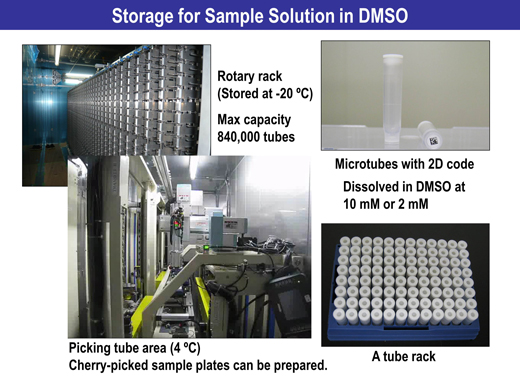
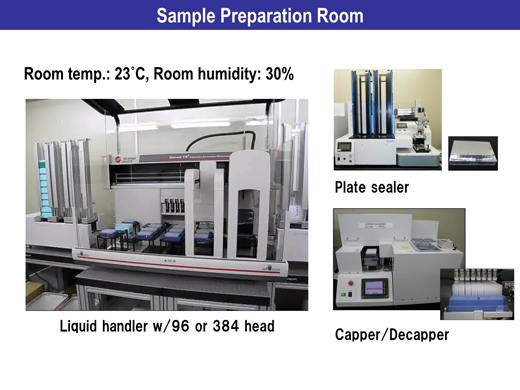
Providing Samples
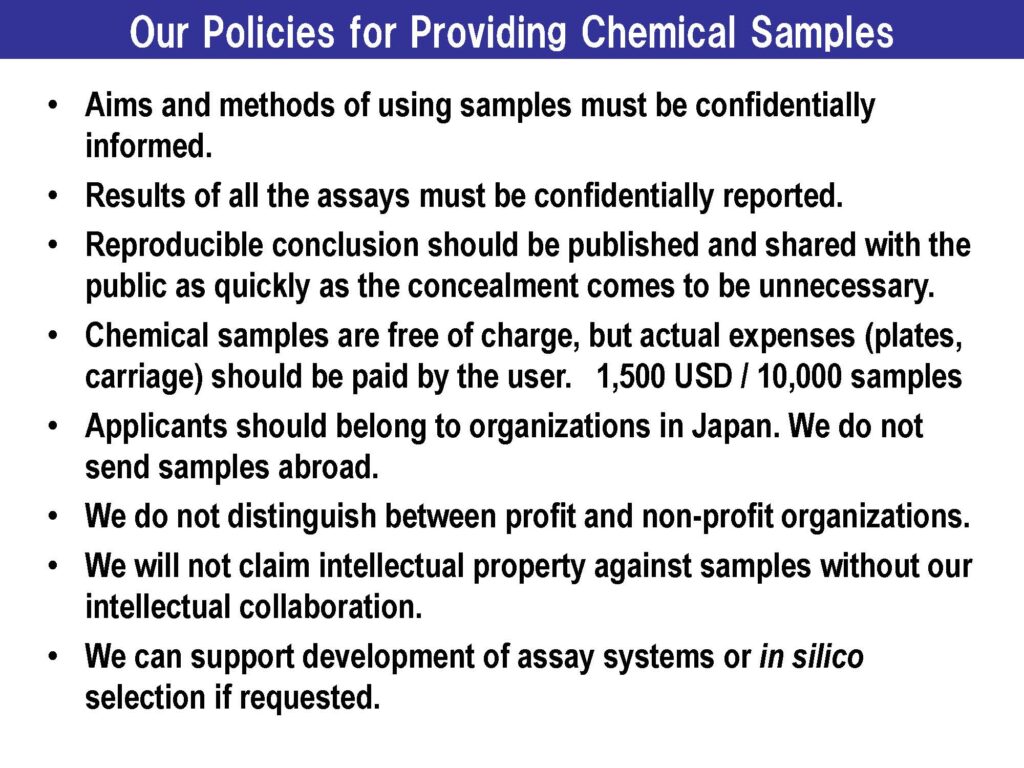
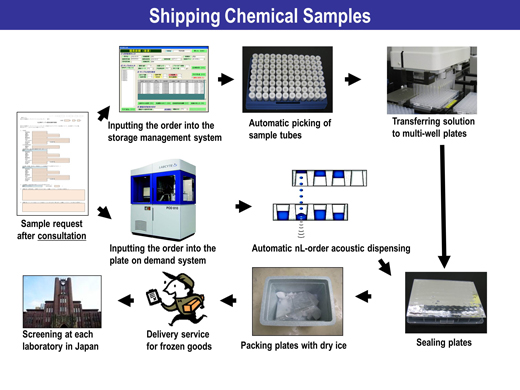

Old Projects
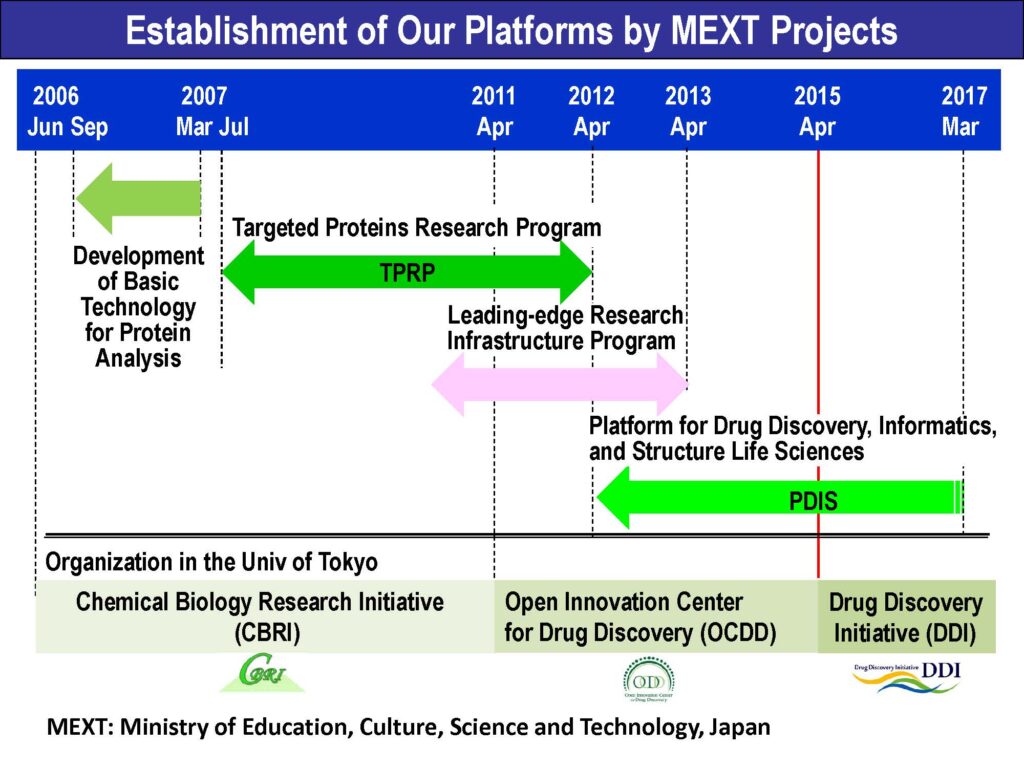
FY2012-2016
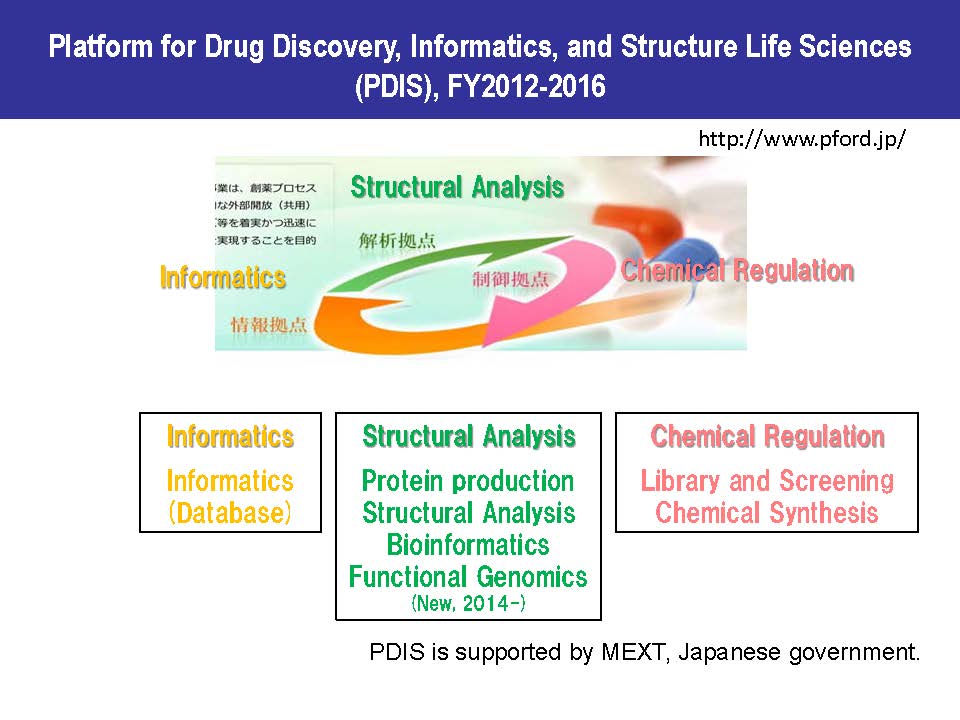
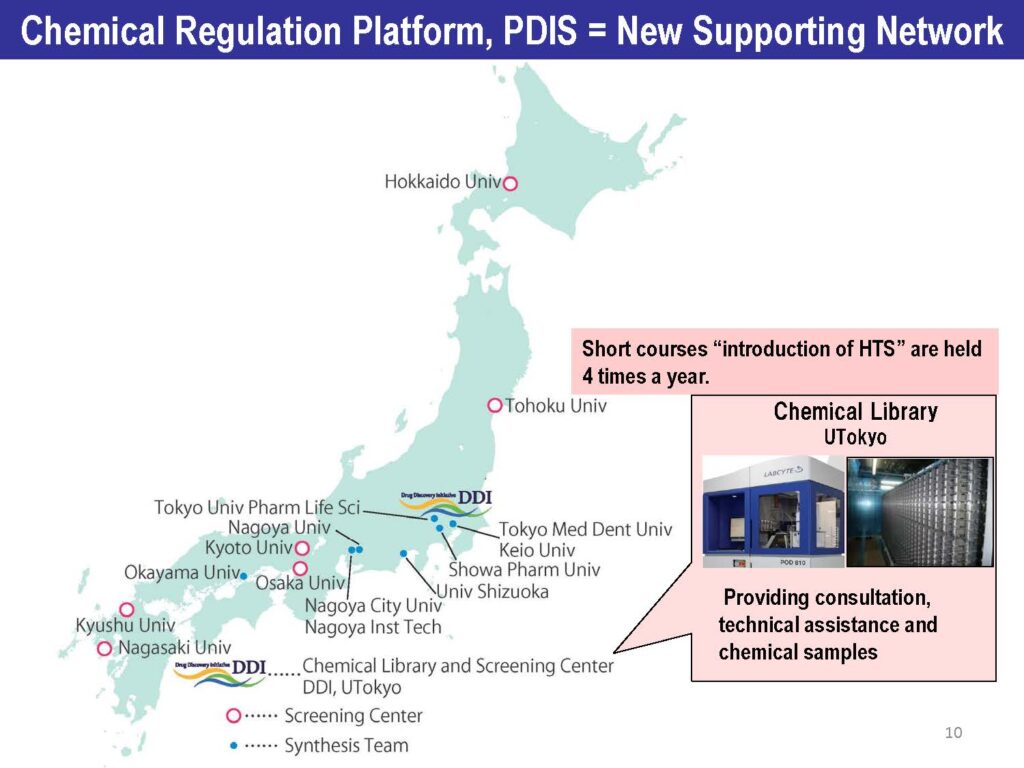
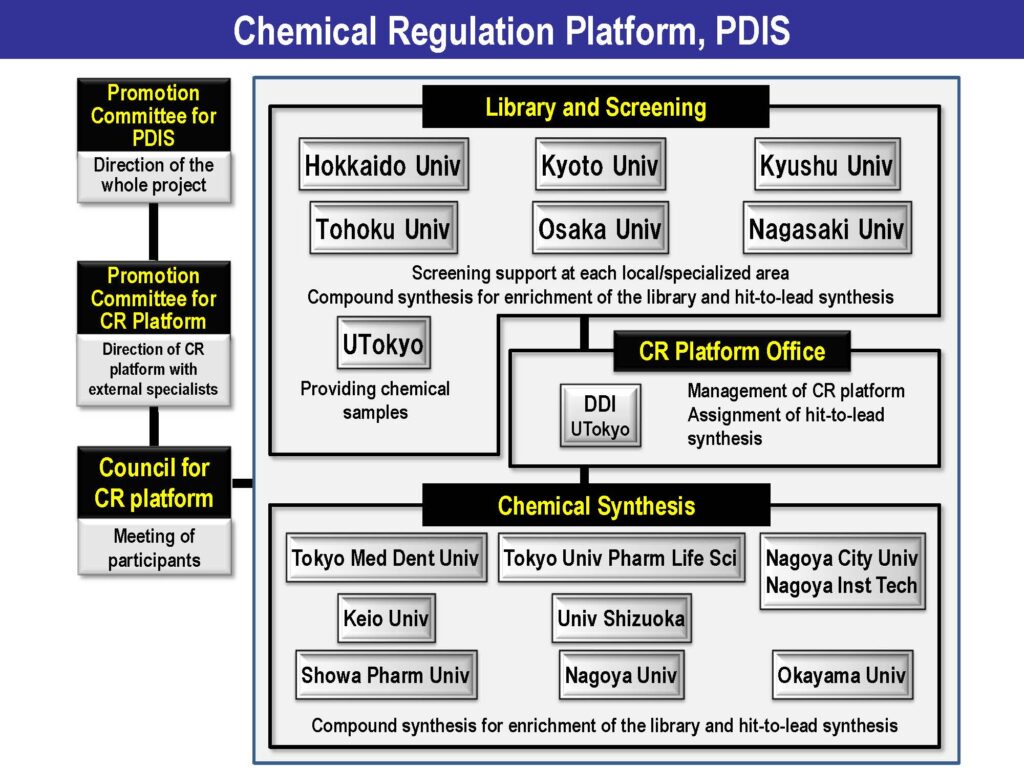

FY2017-2021
